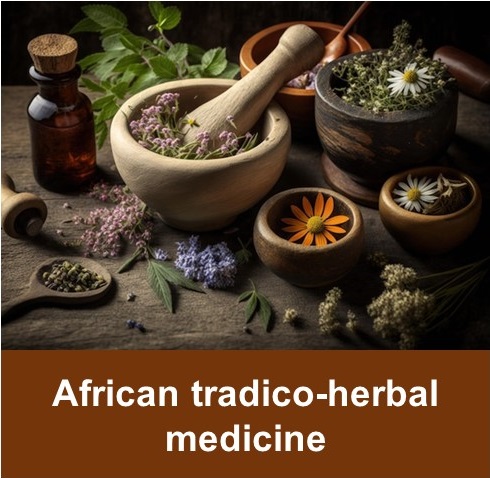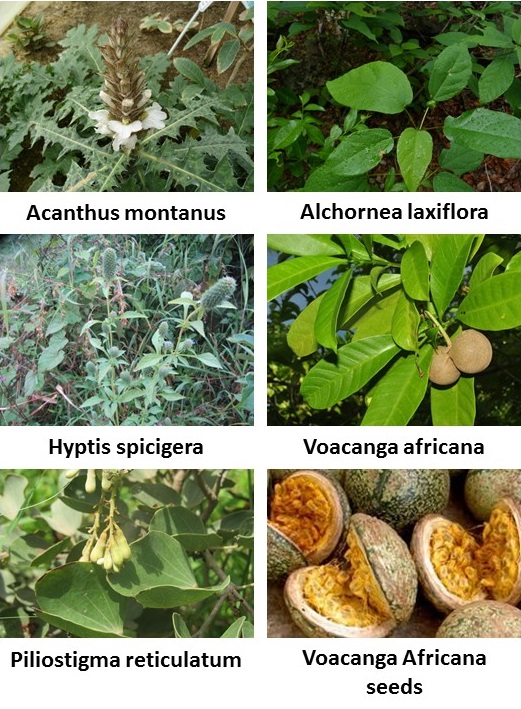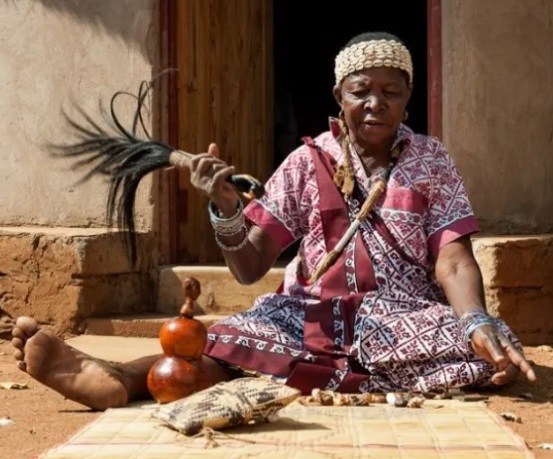By Chinedu Akpa. B. Pharm. Freelance Health Writer. Medically reviewed by: A. Odutola, MB.BS. PhD. FRCSEd.

African traditional medicine: Seeds, flowers, plants, and oil for preparation in a mortar with pestle.
Epilepsy is a chronic nerve disorder that is characterised by recurrent unprovoked seizures. It results from an imbalance between special chemicals called neurotransmitters that brain cells use to communicate with each other. These include glutamate (which excites nerve cells) and gamma amino butyric acid (GABA), which block signals in the brain. One or both of the two sides of the brain may be affected by epilepsy seizures.
Epilepsy affects all races, age groups, and sex. It is characterised by symptoms such as:
Approximately one-third of the 10 million people with epilepsy in Africa typically turn to traditional healing methods before seeking medical attention, even in cases where access to medical care is available. [1]
Related: Epilepsy in Africa: Types, Symptoms, Diagnosis, and Treatment
Before the emergence of modern medicine, Africans have always found ways to take care of their medical needs. Even with the availability of modern medicine, many Africans still hold firmly to their old ways of treating illnesses.
This firm belief in traditional medication is founded on the following perceived benefits:
These perceived benefits could be the reason why about 80% of Africans depend on traditional medicines for their primary healthcare. [2] Additionally, the high reliance on traditional medicine may be due to the widespread belief in Sub-Saharan Africa that many diseases, including epilepsy, have supernatural causes.
Finally, the fact that almost 30% of patients who take anti-epileptic drugs still experience seizures may be another factor that causes many to doubt the worth of anti-seizure medications and go for traditional care. [3]
Read on to discover more about traditional African herbs used in treating epilepsy.
On the African continent, epilepsy has been treated with nearly forty-three plants. [2] Among these, the most common (see figure 1) are:

Fig. 1: Common African herbs used to treat epilepsy
Animal studies using these herbs have shown that all of them have some degree of anticonvulsant activities with Hyptis spicigera being the most effective. [3]
Another herb used in Africa is Ficus platyphylla, mostly used in the Northern part of Nigeria. The plant was found to be effective against seizures in certain scientific models, but ineffective in others, according to a recent study that used these models. [3] Additionally, a toxicity test was done using rats and found it to be non-toxic, thereby making it a potential anti-epileptic medication.
Recommendations for the use of these herbal plants in humans are limited because the majority of the data and studies were conducted on animals. Therefore, more research is advised to demonstrate the safety and effectiveness of these plants in treating epilepsy.
Many Africans who live in rural communities tend to visit traditional healers first before exploring alternatives.
Traditional healers in some African countries believe that the ancestral spirit will guide their diagnosis and course of treatment of ailments. For example, Namibian traditional healers typically believe that they are led by supernatural forces to determine the reason behind a patient's ailment. [1]
While in Mali they treat patients using magic, plants, and spirits. Other techniques used are herbal births, burning animal dung, blowing air, communicating with spirits and portraits, offering animal sacrifices, and wearing protective amulets. [1]

A South African traditional healer (Sangoma) seated on the floor and practicing the art of divination. Credit.
The following were found in a South African study that used questionnaires to interview 20 traditional healers about how they approach diagnosis and treatment: [1]
According to the results of this study and observations made throughout Sub-Saharan Africa, traditional healers rely on their beliefs, practices, myths, and observational knowledge regarding epilepsy in order to treat the condition.
While some of the herbs and other traditional methods have shown promise in the management of epilepsy, the following challenges are evident and worthy of further attention:
Africans should exercise caution because over reliance on these traditional methods has caused many people to put off seeking medical attention, worsening their conditions and causing harm and even death.
African traditional medicine has played a significant role in the management of epilepsy, particularly in bridging healthcare gaps in underserved communities. Herbal remedies and the practices of traditional healers offer alternative approaches that are culturally trusted and affordable. However, the lack of standardized dosages, human trials, and scientific validation of many methods highlights the need for caution. To maximize the potential of these treatments, further research is essential to ensure their safety, efficacy, and integration into comprehensive epilepsy care.
1. Nemathaga M, Maputle MS, Makhado L, Mashau NS. Diagnosis of Epilepsy by Traditional Healers and Its Implications on Management in the Selected Rural Communities of Limpopo and Mpumalanga Provinces: A Qualitative Study. Neuropsychiatr Dis Treat. 2023 Apr 18;19:973-983. doi: 10.2147/NDT.S392479. Available from here
2. Muazu J, Kaita AH. A review of traditional plants used in the treatment of epilepsy amongst the Hausa/Fulani tribes of northern Nigeria. Afr J Tradit Complement Altern Med. 2008 Jun 18;5(4):387-90. doi: 10.4314/ajtcam.v5i4.31294. Available from here
3. Liu W, Ge T, Pan Z, Leng Y, Lv J, Li B. The effects of herbal medicine on epilepsy. Oncotarget. 2017 Jul 18;8(29):48385-48397. doi: 10.18632/oncotarget.16801. Available from here
Related:
First Aid for Epilepsy: Essential Life Saving Tips for Africans
Epilepsy in Africa: Common Myths and Misconceptions
Published: December 16, 2024
© 2024. Datelinehealth Africa Inc. All rights reserved.
Permission is given to copy, use and share content for non-commercial purposes without alteration or modification and subject to source attribution.
DATELINEHEALTH AFRICA INC., is a digital publisher for informational and educational purposes and does not offer personal medical care and advice. If you have a medical problem needing routine or emergency attention, call your doctor or local emergency services immediately, or visit the nearest emergency room or the nearest hospital. You should consult your professional healthcare provider before starting any nutrition, diet, exercise, fitness, medical or wellness program mentioned or referenced in the DatelinehealthAfrica website. Click here for more disclaimer notice.